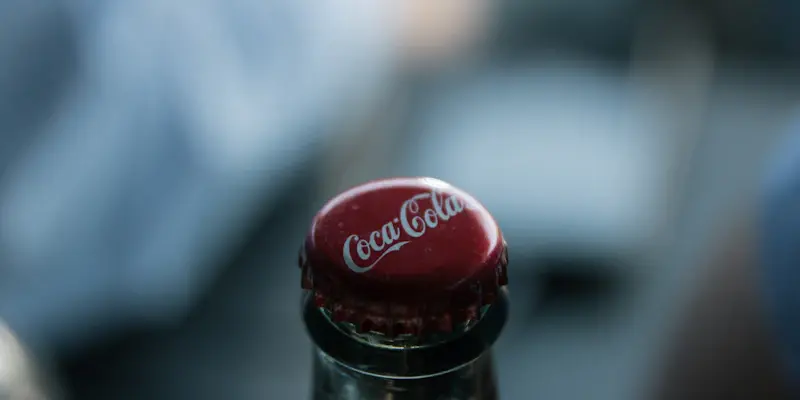Coca-Cola has consistently been a trailblazer in the marketing world, often setting the benchmark for creative advertising and brand engagement. But in its latest endeavor, the beverage giant has embarked on a revolutionary journey by integrating generative AI into its marketing strategies. This bold move, executed in partnership with OpenAI and Bain & Company, is designed to enhance creativity, elevate brand awareness, and boost operational efficiency. The implementation of these cutting-edge technologies marks a significant shift in how Coca-Cola approaches its market strategies, promising to reshape the landscape of consumer engagement.
Innovative Marketing Strategies with Generative AI
Embracing Advanced AI Technologies for Creativity and Operational Efficiency
In its quest to revolutionize marketing, Coca-Cola leveraged OpenAI’s advanced platforms such as GPT-4 and DALL-E. The adoption of these technologies was a strategic decision aimed at crafting innovative campaigns that not only maintain the brand’s global consistency but also offer a personalized consumer experience. The “Create Real Magic” initiative exemplifies this approach, allowing digital artists from around the globe to use Coca-Cola’s creative assets to generate original artwork. These AI-driven campaigns have enabled Coca-Cola to engage consumers in unprecedented ways, bridging the gap between the brand’s heritage and the modern digital landscape.
The impact of embracing generative AI extends beyond creativity. Operational efficiency has been a significant beneficiary of this technological integration. AI tools have streamlined the content creation and campaign execution processes, significantly reducing the time required and increasing overall efficiency. Personalized advertising efforts have also seen a notable boost, with AI-driven campaigns tailored to resonate with diverse and segmented audiences. This approach ensures that marketing messages are both more relevant and impactful, fostering deeper connections with consumers and enhancing brand loyalty.
Addressing Data Management and Ethical AI Use
One of Coca-Cola’s primary objectives was to ensure robust data management and uphold ethical standards in AI application. The integration of AI in marketing raised concerns about data security, ethical use, and maintaining brand coherence. To mitigate these risks, Coca-Cola implemented stringent data protection measures, ensuring consumer data remained secure and protected against potential breaches. These measures were vital in fostering consumer trust and maintaining the integrity of the brand.
Ethical AI use was another critical consideration. Coca-Cola focused on mitigating potential biases inherent in AI algorithms and preventing misinformation. Robust content review processes were established to ensure that AI-generated content adhered to brand standards and quality. This meticulous approach helped maintain the brand’s identity and coherence across all marketing channels. By doing so, Coca-Cola upholds its reputation while embracing the innovative possibilities that AI presents, setting an industry standard for ethical AI practices in marketing.
Enhancing Consumer Engagement and Brand Visibility
Unleashing Creativity Through Global Artist Engagement
The “Create Real Magic” platform stands out as a hallmark of Coca-Cola’s generative AI strategy. This initiative not only showcased the potential of AI-driven creativity but also redefined how the brand interacts with its global audience. By allowing digital artists to reimagine Coca-Cola’s branding, the company tapped into a vast pool of creativity while ensuring that its iconic brand identity remains intact. This level of engagement not only fostered a sense of community among artists but also invigorated the brand’s appeal to a younger, tech-savvy demographic.
These AI-generated artworks have been featured globally on Coca-Cola’s digital billboards, significantly enhancing brand visibility. The innovative campaign has showcased the versatility and dynamism of Coca-Cola’s brand, making it relevant in today’s digital age. By empowering artists worldwide to contribute to its branding, Coca-Cola has democratized creativity, paving the way for novel and appealing visual representations of the brand. This strategic move has proven that balancing brand consistency with innovative input from diverse sources can yield remarkable results.
Improving Operational Efficiency and Campaign Execution
One of the notable successes of Coca-Cola’s generative AI initiatives is the marked improvement in operational efficiency and campaign execution. AI tools have automated many of the content creation processes, drastically reducing the time and resources traditionally needed. This has enabled Coca-Cola to launch campaigns more swiftly and responsively, adapting quickly to market demands and consumer trends. The speed and efficiency of these AI-driven campaigns have allowed the brand to stay ahead of the competition, maintaining its leadership position in the market.
Additionally, this efficiency has not come at the expense of quality. The AI-generated content undergoes strict review processes to ensure it meets Coca-Cola’s high standards. The overall result is a synergy between rapid content production and unwavering quality, a combination that drives successful marketing campaigns. By effectively harnessing the power of AI, Coca-Cola has set a new benchmark for operational excellence in marketing, demonstrating that technology can significantly enhance the creative process while maintaining brand integrity.
Conclusion
Coca-Cola has long been a leader in the marketing world, consistently setting standards for innovative advertising and brand engagement. Recently, the beverage behemoth has taken a groundbreaking step by merging generative AI into its marketing tactics. This pioneering move, in collaboration with OpenAI and Bain & Company, aims to amplify creativity, heighten brand visibility, and enhance operational efficiency. The deployment of these advanced technologies signals a monumental change in how Coca-Cola approaches its marketing strategies, with the potential to revolutionize consumer engagement. Generative AI will allow for the creation of more personalized and interactive advertising content, fostering deeper connections with consumers. By leveraging AI, Coca-Cola aspires to not only stay ahead of the curve but also to set new trends within the industry. This strategic shift underscores their commitment to innovation and reinforces their position as a trailblazer in global brand strategy.

